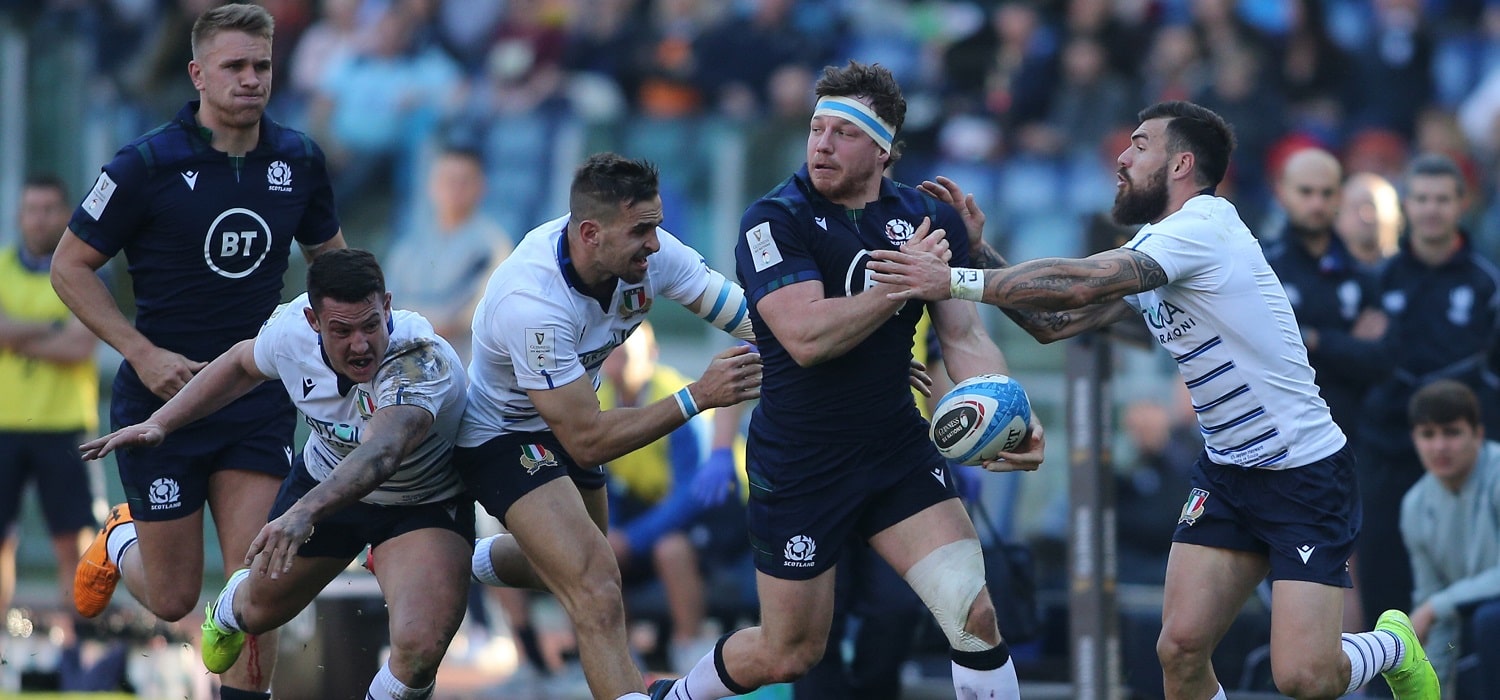
The Six Nations of 2022 will once again see rugby teams from England, France, Ireland, Italy, Scotland, and Wales compete over five thrilling weekends of rugby matches. This is an international competition that takes place every year, with each of the six teams facing each other once.
The 2022 match schedule for the Guinness Six Nations kicks off on Saturday, February 5, 2022, with Ireland playing their first match against reigning champions Wales, followed by Scotland hosting England at BT Murrayfield; then on Sunday, February 6, 2022, France will host Italy at the Stade de France in Paris.
The 2022 Guinness Six Nations competition will run until March 19, 2022, when all three matches of Round 5 will take place on the same day, known as Super Saturday, starting with Wales v Italy at the Principality Stadium in Cardiff, followed by Ireland v Scotland and Dublin, culminating in France-England at the Stade de France.
Wales clinched their first Six Nations title of the Wayne Pivac era, with four out of five wins helping them finish at the top of the table. On Super Saturday, they were defeated in dramatic fashion by France, effectively ending their chances of completing a clean sweep.
That result kept the title race alive for another week after Scotland’s third round clash with France was rescheduled for the following Friday. The Bleus needed a bonus point and a 21-point victory margin, but their hopes for the title were dashed by Gregor Townsend’s men, who secured their first win in Paris since 1999.
The ancestor of the Six Nations was born in 1883 as the Home Championship, a tournament for the teams of the British Isles. 27 years pass, and in 1910, France enters the competition; the tournament becomes the Five Nations. After another ninety years, Italy was invited to join the European rugby aristocracy in 2000.
When the tournament was born, rugby was a popular sport in the British Isles and tended to be aristocratic, played in colleges and by the rich. Ireland has remained united; there are no longer two national teams, the Republic of Ireland and Northern Ireland, but only one, each with their own anthem and flag.
The history of the tournament is intertwined with politics. The two world wars interrupted the tournaments; the troubles in Northern Ireland in 1972 even led to the suspension of the event because Scotland and Wales did not want to go and play in Dublin.
But there were also other reasons that forced postponements: for example, an annoying infection, foot-and-mouth disease, in 2001 caused several meetings to be postponed, and the last one was held only in October. While in 1962, it was smallpox that made Ireland-Wales move again in the autumn. The tournament is full of sporting and non-sporting stories, like the years of exclusion of France, accused of nothing less than “professionalism” (1932–1939).
We must wait for the seventies for the television and mass broadcasting of the tournament, and only in 1993 will the Championship Trophy be awarded to the absolute winner, counting the points difference. Before, there were many equal victories.
The Six Nations includes other titles such as the Grand Slam or the Triple Crown. But there are many others:
The Grand Slam, or Le Grand Chelem, as they call it in France, is a title that is awarded to the team that ends up undefeated in the Six Nations. The last two Grand Slam title winners were Ireland in 2018 and Wales in 2019. In 2020, the English champion did not win the Grand Slam, having been beaten on matchday one by France.
It’s like the Grand Slam, but it only involves the four teams from the British Isles: England, Wales, Scotland, and Ireland. Whoever wins with all his rivals, wins the triple crown, regardless of whether or not he wins the Six Nations.
The Six Nations includes other titles such as the Grand Slam or the Triple Crown. But there are many others:
Matchday 1
Matchday 2
Matchday 3
Matchday 4
Matchday 5
GSB Uganda Copyright © 2025 All rights reserved. GSB Uganda is licensed and regulated by the National Lotteries & Gaming Regulatory Board of Uganda | Betting is addictive and can be psychologically harmful | 25+ License Nos. NLGRB-BM-25-0089, NLGRB-SL-25-0093 & NLGRB-CS-25-0101